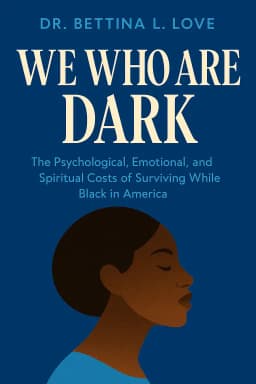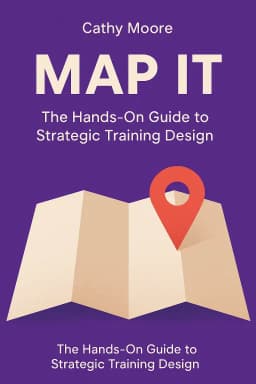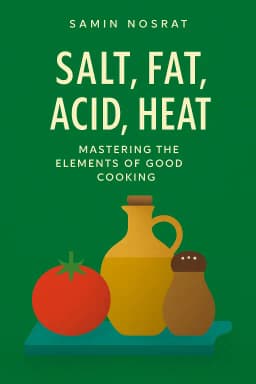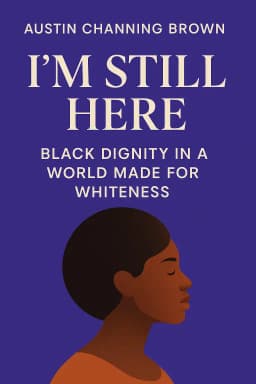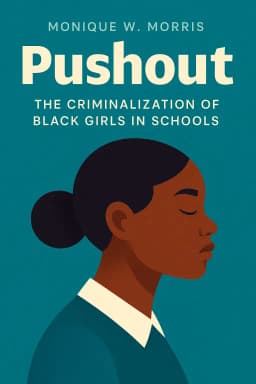
Your Brain's Unreliable Narrator
Golden Hook & Introduction
SECTION
Laura: Most people think teaching kids critical thinking is about spotting 'fake news.' But what if the most unreliable narrator, the one spreading the most convincing misinformation, is actually living inside your child's head? And yours? Sophia: Whoa. Okay, that's a heavy way to start. So you're saying the biggest threat isn't a Russian bot farm, it's my own brain? Laura: That's the radical idea at the heart of Raising Critical Thinkers by Julie Bogart. She argues that we spend all this time teaching kids to critique the world, but we forget the most important first step: critiquing the lens they're looking through. Sophia: Julie Bogart... isn't she the founder of that huge Brave Writer program? The one who homeschooled her five kids for nearly two decades? Laura: Exactly. And she wrote this book because she saw that in our chaotic digital world, the old rules don't apply. It’s not just about facts anymore. The book has been highly rated, but also a bit polarizing, because it argues that real critical thinking starts with something we rarely talk about in education: self-awareness. Sophia: I'm already intrigued. It feels like we're about to turn the whole idea of critical thinking inside out. Laura: We are. And to understand this, Bogart tells a fantastic story about her own family and a mysterious love letter.
The Unreliable Narrator in Your Head
SECTION
Sophia: A love letter? How does that connect to critical thinking? Laura: It's the perfect illustration. So, Bogart is with her aunts, sorting through her late grandfather's things. They find a love letter he wrote to his wife, her grandmother, who now has dementia. In it, he reminisces about a romantic encounter they had back in the 1930s, and he uses the phrase "made love." Sophia: Oh, I can see where this is going. Laura: Precisely. The family erupts in debate. The older aunt, a former nun, is adamant it means something sweet and innocent, like a deep conversation. The younger, more rebellious aunt is laughing, convinced it means exactly what we think it means today—premarital sex. The author's mother dismisses the whole idea as impossible. Sophia: Wow. So they all have the exact same piece of evidence—the letter—but they come to completely different conclusions. Laura: Exactly. And Bogart's point is profound: none of them were trying to be deceptive. Each one's interpretation was shaped by their own identity, their experiences, their hopes, and their biases. They were all listening to the unreliable narrator in their own head. Sophia: That's fascinating! So the 'critical thinking' in that moment isn't about hiring a historical linguist to figure out what 'made love' meant in the 1930s. It's about each person realizing why they are so certain of their own interpretation. Laura: You've got it. It’s about asking, "What do I hope will be true?" before you decide what is true. Critical thinking isn't a weapon to wield against others; it's a mirror to hold up to yourself. Sophia: Okay, but how do you teach a kid that? It sounds so abstract. You can't just tell a seven-year-old, "Hey, interrogate your subconscious biases!" Laura: You're right, and Bogart has a brilliant, practical answer for that. She suggests starting with stories that have built-in perspective shifts. Her go-to example is the children's book The True Story of the 3 Little Pigs by Jon Scieszka. Sophia: Oh, I love that book! Where the wolf tells his side of the story. Laura: Yes! He claims he just had a cold and needed a cup of sugar for his granny's birthday cake. He says he was framed! Bogart says that when her son Noah heard this, a lightbulb went on. He realized the story he knew wasn't the only story. It introduces the idea of an unreliable narrator in a fun, low-stakes way. Sophia: That's a perfect example. It teaches kids that every story comes from a storyteller, and every storyteller has a perspective. It’s not about facts; it’s about who is telling the story and why. Laura: And that's the foundation. Before you can evaluate a news article or a scientific claim, you have to understand that all information passes through a filter. And the first and most powerful filter is your own.
Beyond Books: The Three Pillars of a Real Education
SECTION
Sophia: Okay, so we need to be aware of our own biases. I'm on board. But once we are, how do we actually learn about the world more accurately? Is it just about reading more books from different perspectives? Laura: That's the perfect question, because Bogart argues reading is only one-third of the equation. She says a real education, one that builds true critical thinkers, stands on three pillars: Reading, Experience, and Encounter. Sophia: Reading, Experience, and Encounter. Tell me more. Laura: Reading is what we all know. It's safe, it's controlled, you gather information at a distance. But it's limited. Experience is the next level. It's more hands-on, it's getting closer to the subject. But Encounter... encounter is transformative. It's when you are so close to something that it has the power to completely overturn what you thought you knew. Sophia: That sounds intense. Can you give me an example? Laura: Bogart gives this incredibly powerful one about her mother, who was an avid backpacker. Her mom had read all the field guides about bears. She knew the facts, the statistics, the safety protocols. That's 'Reading.' Sophia: Right, she had the book knowledge. Laura: Then one summer, she saw a bear from a distance on a trail. That's 'Experience.' It's a bit more real, a bit more personal. But then came the 'Encounter.' One night, she woke up and went out of her tent to pee. As she's squatting in the dark, she looks up and sees an eight-foot-tall brown bear standing on its hind legs just fifty yards away. Sophia: Oh my god. Laura: In that moment, she said everything she'd ever read was meaningless. The sheer size, the smell, the unpredictability, the raw power—that was the encounter. It was a visceral, overwhelming truth that no book could ever convey. It completely rewired her understanding of what a 'bear' is. Sophia: That makes so much sense. I can read a hundred articles about a country, but it's nothing like the experience of visiting and seeing the sights, or the encounter of having a real, deep conversation with someone who lives there and challenges my assumptions. Laura: Precisely. Bogart shares her own story about that. Growing up during the Cold War, her image of communist countries was gray, grim, and oppressive. Then, as a young woman, she visited East Berlin. She went through Checkpoint Charlie expecting this bleak, colorless world. Sophia: And what did she find? Laura: Sunshine. The city was vibrant, the buildings were glinting, there was a charming bridge over the river. The reality of the place—the weather, the people, the geography—was completely different from the political narrative she had internalized. The experience shattered her preconceived mental image. Reading gives you the map, but experience and encounter make you live in the territory.
The Courage to Be Uncomfortable
SECTION
Laura: And that leads to Bogart's most challenging, and maybe most important, point. These experiences and encounters are often deeply uncomfortable. Sophia: I can imagine. That bear encounter doesn't sound very comfortable. Laura: It's more than just physical discomfort. It's psychological. To illustrate this, she tells this hilarious and relatable story about living in Morocco. To get to town, she had to take a shared taxi from a chaotic, crowded taxi stand. Sophia: I think I know where this is going. No orderly lines, right? Laura: None. It was a free-for-all. People would push, shove, and yell to get a spot. Coming from an American 'wait-your-turn' culture, she was initially outraged. She saw it as rude, aggressive, and wrong. She spent an hour just watching, feeling helpless and judgmental. Sophia: I've been in that exact situation! My instinct is to judge, not to look inward at my own discomfort. Laura: Exactly! But over time, she realized something. The Moroccans weren't being rude; they were operating under a different set of shared cultural rules. To survive, she had to stop judging their system and start tolerating her own discomfort with it. She had to learn to be assertive, to push a little, to claim her space. Sophia: So she became one of them! Laura: She did! So much so that when her sister visited, she was horrified watching Julie expertly elbow her way into a taxi. And Bogart uses this to redefine tolerance. She says true tolerance isn't about passively thinking, "Oh, how quaint, their culture is different." It's the active, difficult, emotional work of sitting with your own discomfort when your worldview is challenged. Sophia: This is probably where some of the criticism of the book comes from, right? I've seen some reader reviews that say this feels more like therapy than critical thinking. They want a focus on logic and facts, not feelings and identity. Laura: Absolutely. And Bogart's argument is that you can't separate them. You can't be a purely logical machine. Your emotions and identity are always in the room. The 'rhetorical imagination'—which is the ability to genuinely see from another's point of view—requires emotional work. It's not a logic puzzle; it's an act of courage. Sophia: The courage to be uncomfortable. The courage to admit your first impression might be wrong. The courage to change your mind. Laura: That's the whole game.
Synthesis & Takeaways
SECTION
Laura: So, in the end, raising a critical thinker isn't about giving them a toolkit to win arguments online. It's about cultivating a certain kind of person: someone self-aware enough to question their own story, educated enough through reading, experience, and encounter to understand others, and brave enough to sit with the discomfort of not always being right. Sophia: It really reframes the goal. It's less about being smart and more about being wise. It's about intellectual humility. Laura: And it starts so small. It starts with reading a different version of a fairy tale, or trying a food you think you'll hate, or having a real conversation with a neighbor whose life is totally different from yours. Sophia: It makes you wonder, what's one 'unreliable' story you tell yourself every day? What's a belief you hold that's based more on comfort than on fact? That's a powerful question to sit with. We'd love to hear your thoughts on our social channels. Laura: This is Aibrary, signing off.


